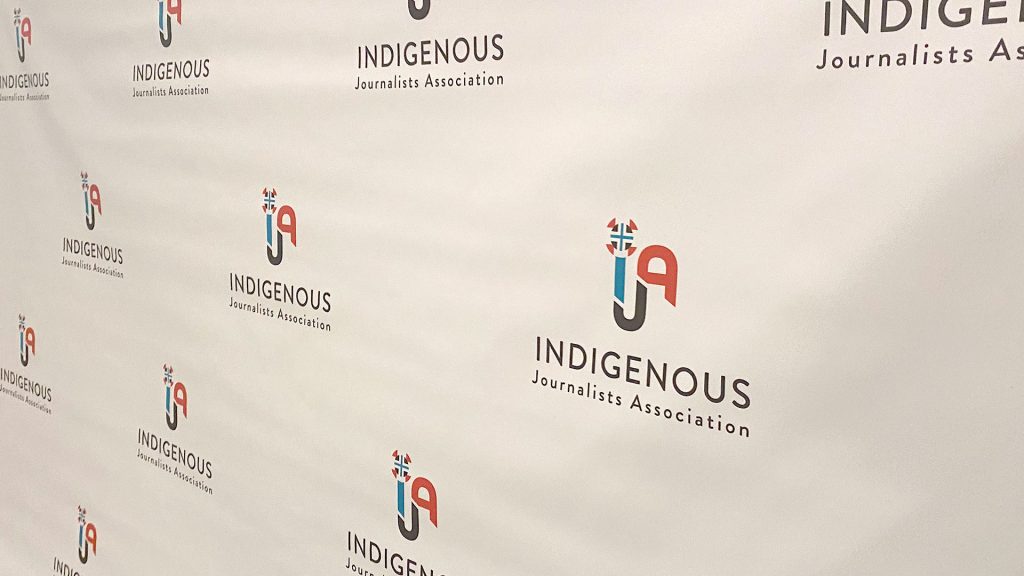
NAJA unveiled its new name and logo on Friday in Winnipeg. Photo: Kathleen Martens/APTN.
It’s official: NAJA is now IJA.
A majority of members of the Native American Journalists Association (NAJA) has voted to change its name to the Indigenous Journalists Association (IJA), the group announced Friday at its annual conference in Winnipeg.
“The vote was 89 to 55,” said Christine Trudeau, chair of the election committee, in revealing the results.
NAJA has more than 900 members, mostly in the United States, where it was formed 40 years ago. This is the first time it is holding a convention in Canada.
“NAJA was founded as the Native American Press Association in 1983 and changed its name in 1990 to reflect a more inclusive mission,” noted executive director Rebecca Landsberry-Baker in her welcome letter to conference delegates. “Our membership is tasked again with changing the name – this time to the Indigenous Journalists Association.
“I believe it is with that same spirit of inclusivity that we will consider welcoming Indigenous journalists across the globe to join the organization.”
Indigenous journalists in Canada, which include First Nation, Inuit and Métis reporters, were first invited to join IJA in 2021.
“Our stories are intertwined in so many ways, and going forward I know that we are stronger together, ” said IJA president Graham Lee Brewer in his welcome letter.
“And it is with that spirit that I look forward to the years ahead when we will grow our international community to support our relations all around the world.”
Brewer noted the organization is on a growth trajectory.
“In the six years since I joined the board of directors, our staff has more than doubled, our membership numbers have skyrocketed, and our focus has been sharpened,” he said.
“I see it every day in the good work you do for our people.”
Landsberry-Baker praised NAJA members for the “meaningful work” they do in Indigenous communities, and the way they’re “educating and training” non-Indigenous media to meet higher standards of coverage – “free of stereotypes, tropes and parachuting …
“Our work is more important and timely than ever,” she noted.
The conference started Thursday and wraps up on Saturday.










